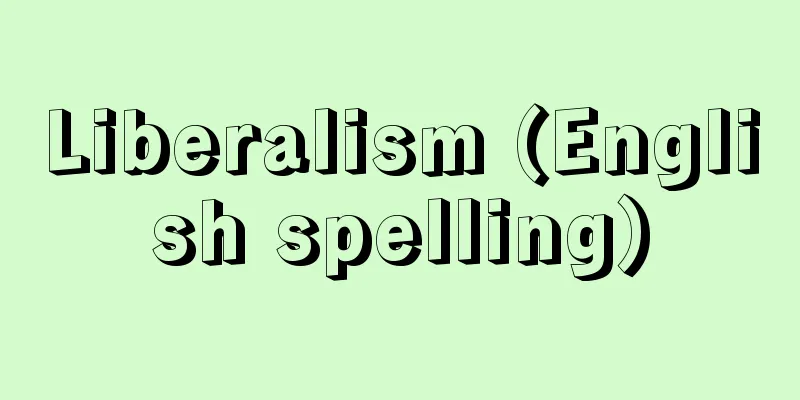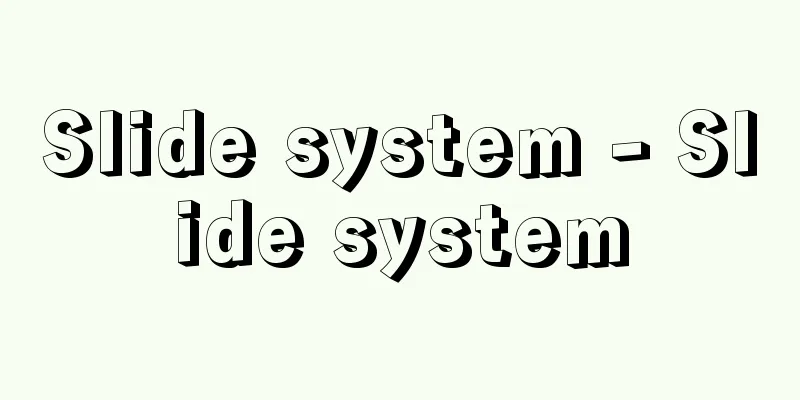Liberalism (English spelling)

|
Liberalism is a political, economic, and social ideology that emerged during the civil revolutions of the 17th and 18th centuries. Seeking liberation from the oppression of absolute monarchs, the modern citizen class advocated that humans should be free to make their own judgments and act in order to ensure their own happiness and safety without being constrained by anything. Liberalism can therefore be said to be the most fundamental ideological principle that permeates the entire history of modern democratic thought. For example, the ideas of respect for human rights that characterize the constitutions of modern nation states and the ideas calling for the establishment of democratic political systems can all be said to have their origins in liberalism. However, since liberalism originally emerged as the thought and ideology of the modern middle class, it encountered new situations in the course of subsequent changes in political, economic, and social structures and historical development, and was forced to self-correct its ideological content. This was especially evident in the form of ideological conflicts over freedom and equality since the 19th century, which led to various criticisms and negative evaluations of liberalism. Nevertheless, as an ideology that started out based on respecting human freedom, liberalism is undoubtedly still the most important ideology in modern times, transcending differences in political and economic systems and ideologies. In order to properly evaluate liberalism, it is necessary to consider what the essence of liberalism is, what role it has played in the 350-year history of modern times, and how liberalism has changed over the course of history and still occupies an important position in modern democratic thought. [Hiroshi Tanaka] The Emergence and Nature of LiberalismThe idea of placing the highest value on human freedom can be traced back to ancient Greece and Rome, but it was only after the victory of the civil revolutions in the 17th and 18th centuries, which led to the establishment of modern nations and societies, that liberalism truly emerged as a way of life for people, a rule for running politics, or a basic principle for economic activity. In England, the birthplace of democracy, liberal thought has been gradually developing for several centuries since the Magna Carta (1215) in the early 13th century, but it was in the Petition of Right (1628), the Bill of Rights (1689), the American Declaration of Independence (1776), and the French Declaration of the Rights of Man (1789) that liberal thought was clearly expressed in the form of constitutions and declarations. The ideas in these constitutions and declarations were ideologically constructed by social contract theorists and democratic thinkers such as Hobbes, Harrington, Milton, Locke, and Rousseau. Next, I will discuss the ideological content, or essence, of liberalism in the early modern period. Humans cannot live in isolation, but form some kind of group, cooperate with each other to produce the means of living to sustain each individual's life, and unite to fight against external enemies to ensure the survival of the group and the individual. The city-states of the Greek and Roman eras, medieval feudal states, and absolutist states can all be considered forms of human groups created for such purposes. In some cases, such as the city-states of Athens and the medieval Republic of Venice, free citizens ran the government, while in other cases, a monarch or a governing group wielded great power to maintain collective life. Before the establishment of modern states, the majority of states adopted the latter political form, and in those states, the ruler's relationship with his subjects and citizens was usually a feudal, oppressive state, so people's daily lives were neither free nor comfortable. A movement then arose to establish a political group that would strive for democratic political administration, with the securing of "human freedom" as the foundation of political society, and this was how today's modern nation-state came into being. However, as members of a group, humans cannot act completely freely. People must always act while taking into account the harmony between the interests of the group and the interests of the individual. Thus, human freedom is always accompanied by some kind of restraint, restriction, and discipline. However, even when restricting free action, if it is something that is decided by the consent of not only the person but also all the members of the group, the restriction of action there would not necessarily be considered a restriction or infringement of freedom. The system of cohesion and operation of political society that was created to democratically solve such problems is a system in which all members choose their representatives by agreement and contract, have them enact fair and just laws that govern the political society, and ensure the safety and maintenance of the political society by each person obeying those rules and laws. Today, this was the rule of political operation called the "rule of law," and the principle of democratic political operation of modern nations devised by proponents of the "social contract theory" such as Hobbes, Locke, and Rousseau. In this system, "national sovereignty" is considered the principle of political and social cohesion, and the ruler, as the representative, governs by being bound by the laws he enacts for the benefit of the whole, while the people are expected to voluntarily obey the laws in order to ensure the safety of their lives and maintain peace in the group. Therefore, liberalism can be said to be an ideology that constitutes the fundamental principles of human rights and freedom (human rights) and the limitation of power (ensuring democratic politics). Today, the constitutions of many countries stipulate in articles that "freedom of speech and thought" and "personal liberty," which requires that sufficient care be taken not to violate human rights when restraining a person (arrest or detention). This is to prevent rulers, or state power, from unjustly infringing on human freedom, and this way of thinking has gradually developed, first in England, since Magna Carta. In modern states, various governing groups (parliament, cabinet, court, police, army, etc.) exist separately to maintain peace and security of the state, and the majority of the people who produce the means of living to sustain the lives of individuals and the entire group. The two groups cooperate with each other to maintain the existence of the state as a group. Since the former is a governing group that does not produce things, the latter pays a part of the profits gained from its productive activities in the form of taxes, and the governing group runs the state with the taxes paid. Therefore, the French Declaration of the Rights of Man also states that paying such taxes is a citizen's duty (Article 13). In this case, the important thing is that, like the feudal lords and absolute monarchs of the past, forcing people to contribute and taking away their property, which is the result of their sweat and labor, for their own selfish convenience, goes against the "spirit of freedom" of allowing people to produce freely and achieve results (laissez-faire), so that all members can enjoy their lives. For this reason, in modern states, the amount of tax is determined by the parliament, which is a meeting body of the people's representatives. Since Magna Carta, it has been said that "there is no taxation without consent," and this is why the "guarantee of property rights" and the "inviolability of private property" are stipulated in the constitutions of each country. Therefore, the "guarantee of property rights," like "freedom of speech and thought" and "personal freedom," was asserted in constitutions and declarations at the time of the establishment of modern nation states as a fundamental right (liberal right) that must not be infringed even by state power, and all of these rights, as "freedom from power," have been regarded as the most important ideological principle of liberalism. Looking at it this way, we can see that the content of liberalism that emerged in the 17th and 18th centuries includes national sovereignty, respect for basic human rights, the rule of law, pacifism, etc. Hobbes's statements that the most important thing for humans is respect for life (self-preservation), Locke's statements that the purpose of establishing political society (the state) is to protect ownership rights (property - life, liberty, property), and Rousseau's statements that the purpose of the social contract is to ensure human freedom can be said to succinctly explain the essence of modern liberalism. [Hiroshi Tanaka] Liberalism and Political DemocracyLiberalism emerged with the establishment of modern nation states and societies, and subsequently promoted the development of democratic and parliamentary politics in various countries. For example, in Britain from the end of the 18th century to the 1930s, liberalism was linked to the idea of expanding the right to vote, as seen in the political thought of Bentham, and this led to the further development of democratic politics. Because the civil revolution was led by the upper bourgeoisie, the right to vote was not given to people below the middle class. Those who were excluded from the right to vote argued that political rights (political freedom) were a birthright (natural right), but the upper bourgeoisie argued for "limited suffrage," arguing that the right to vote should be limited to notable people with "property and education." However, with the advent of the Industrial Revolution, and as the numbers of the middle and working classes increased, the demand for expanding the right to vote again grew. At that time, Bentham supported the demand for expanding the right to vote based on the principle of utility, which holds that all human beings are homogeneous and equal, and that the purpose of politics is to realize the "greatest happiness" for the "greatest number" of people, and this resulted in the "First Suffrage Amendment" of 1832. Then, in 1867, thanks to the efforts of Bentham's disciple J. S. Mill and others, the "Second Suffrage Amendment" was enacted, granting the right to vote to the urban working class (universal suffrage for men and women was realized in 1928). Thus, the right to vote, which was not considered a basic human right during the civil revolution, was added to the catalog of democratic ideas as a new political right and political freedom. The reason for this was that it was thought that in order for people to secure their freedom, it was necessary for all people to have the opportunity to directly participate in politics and express their will. In this sense, the right to vote is a product of liberalism, and the expansion of the right to vote democratized the parliamentary system itself, and the content of liberalism was further enriched in the form of political democracy. From this point on, the achievement of political democracy was pursued as the first goal of establishing liberalism and "human freedom" in countries other than England as well. The establishment of political democracy made it possible to move further in the direction of realizing "human equality," which is as important as "human freedom." [Hiroshi Tanaka] Revision of Liberal Economic ThoughtIn the political sphere, liberalism has made a great contribution to human history as the fundamental principle of political democracy and parliamentary democracy. In the economic sphere, liberalism has also made a great contribution to the development of capitalist economy. As mentioned above, modern nation states were dual societies that separated politics and economics. A small number of people worked as political professionals to ensure the safety and maintenance of political society, while the majority of the people engaged in economic activities based on their own free judgment, which enabled the smooth production of food and other means of livelihood for political society. In this society, the role of the state and government was considered to be limited to the position of a "night watchman state" that maintained public order and defended against invasion by foreign enemies, while "laissez-faire" (laissez-faire) was considered to be good for economic activities, which led to the great development of capitalism and a dramatic increase in productivity. During this period, it was also believed that the harmonious development of production and the infinite increase in productivity were guaranteed by the cooperation of the capitalist class that owned capital and the majority of working people who provided labor. The situation in which Smith wrote about The Wealth of Nations (1776) was one in which he was optimistic about the national economy. However, as the capitalist economy continued to develop, on the one hand, wealth became concentrated in the hands of a small capitalist class, while on the other hand, the majority of the working class suffered poverty and unemployment in an unstable social situation with periodic depressions and recessions. For this reason, from the mid-19th century onwards, it became an urgent political task to take measures to correct economic and social inequality and provide relief to the weak. As a result, several points in liberal economic thought were revised. One of them was the revision of the idea of "inviolability of private property." The idea of "inviolability of private property" originally emerged as an idea against unjust taxation by absolute monarchs, and was considered an extremely important principle in liberalism. When this idea was established with the establishment of the modern state, the principle of "inviolability of private property" then became an idea to justify the accumulation of capital by the capitalist class, which promoted economic development. However, as economic and social contradictions became apparent and a large number of weak people appeared, it became necessary to establish a social security system and an education system to provide relief to them. Possible sources of funds for this included allocating a portion of taxes and imposing progressive taxes on high-income earners. However, some property owners who paid the taxes objected to this. They opposed such methods, arguing that they would violate the traditional "principle of freedom" of "inviolability of private property" and lead to restrictions on private property. However, in Britain, the idea of "positive liberty" advocated by Green, which holds that the spirit of freedom is in the respect for human beings and that freedom is a means for humans to live like humans, became dominant, and liberal economic thought was amended to state that "restrictions on private property" are possible for the sake of the whole or the public interest, and since the end of the 19th century, the country has been on the path to a welfare state in line with the direction of relief for the weak and equality. The idea that even personal property can be restricted for the sake of the public welfare is also adopted in the "Weimar Constitution" (1919) and Article 29, paragraphs 2 and 3 of the Constitution of Japan. Another revision of the liberal economic thought was made to the principle of freedom of contract that governs labor-management relations. In the early modern period, the principle of freedom of contract was adopted for employment relations, which meant that employers and employees could freely decide on working conditions and wages. This idea was also progressive for workers, in that they could freely choose their occupation and workplace, without being tied to the land and forced to work like serfs in feudal society. However, in a capitalist society, workers could not make a living except by selling their labor, so they had to work under poor working conditions and for low wages, and there was always the risk of being fired without any security during times of depression or economic downturn. Therefore, in order to protect workers who are in a socially weak position, it became necessary to recognize the right of workers to organize themselves, to exercise that right to improve working conditions, and to legally guarantee that capitalists would not fire workers without providing any security. Thus, the Trade Union Act was enacted in the UK in 1870, and today various basic labor rights are guaranteed in the constitutions of many countries. This revision of the principle of freedom of contract can be said to have originated from the liberal ideology of the early modern period, which held that all human beings are born free and equal. [Hiroshi Tanaka] Japanese LiberalismIn Japan, liberal ideas and systems were introduced through enlightened thinkers such as Fukuzawa Yukichi, following the Meiji Restoration. Movements such as the Movement for the Establishment of a National Diet and the Freedom and People's Rights Movement were attempts to respect human rights and establish a democratic political system. However, after the enactment of the German (Prussian)-style monarchical-centered Constitution of the Empire of Japan, liberalism hardly developed in Japan, except for a short period from the Taisho Democracy period to the early Showa period, and was overwhelmed by statism and fascism, which preached the absolute superiority of the state over the individual. Then, after World War II, with the enactment of the Constitution of Japan, liberal ideas and a democratic political system were finally established in Japan. [Hiroshi Tanaka] Liberalism todayAs we have seen from the above, liberalism today does not simply mean political democracy, but also includes social democracy, which seeks the realization of social equality. In this sense, liberalism is not necessarily the opposing concept to socialism today, and the two ideologies can be seen as having the ability to cooperate with each other in order to achieve the realization of human freedom and equality. [Hiroshi Tanaka] "The State and the Individual" by Hiroshi Tanaka (1990, Iwanami Shoten)" ▽ "Modern Japan and Liberalism" by Hiroshi Tanaka (1993, Iwanami Shoten) ▽ "History of Modern Political Thought" by Hiroshi Tanaka (1995, Kodansha) [References] |Source: Shogakukan Encyclopedia Nipponica About Encyclopedia Nipponica Information | Legend |
|
17、18世紀の市民革命期に登場した政治・経済・社会思想。絶対君主の抑圧から解放されることを求めて、近代市民階級が、人間は何ものにも拘束されずに自分の幸福と安全を確保するために自由に判断し行動できる存在となるべきことを主張した思想である。したがって自由主義は近代民主主義思想史全体を貫くもっとも基本的な思想原理といえる。たとえば現代国家の憲法を特徴づけている人権尊重の思想や民主的な政治制度の確立を求める思想などの源流は、すべてこの自由主義から発したものといえよう。 ところで、自由主義はもともとは近代市民階級の思想、イデオロギーとして登場したものであるから、その後の政治・経済・社会構造の変化や歴史的進展の過程のなかで新しい局面に遭遇し、その思想内容に関して自己修正を余儀なくされるという事態も生じた。とくにそれは、19世紀以降の自由と平等をめぐる思想的衝突という形で現れ、自由主義に対するさまざまな批判やマイナス評価が生じた。にもかかわらず、人間の自由を尊重することを基本として出発した思想という意味で、自由主義は政治・経済体制やイデオロギーの違いを超えて、現代においても依然として最重要な思想であることは間違いない。そこで、自由主義を正当に評価するためには、自由主義の本質とは何か、自由主義は近代350年の歴史のなかでいかなる役割を果たしてきたか、また自由主義は歴史の進展とともにどのような変容を遂げながら現代民主主義思想においていまなお重要な位置を占めているのか、等々について考察する必要があろう。 [田中 浩] 自由主義の登場と本質人間の自由に最高の価値を置く思想は遠く古代ギリシア・ローマの時代にその源流を求めることができる。しかし自由主義すなわちリベラリズムが、人間の生き方、政治運営のルールあるいは経済活動の基本原理として本格的に登場してきたのは、17、18世紀の市民革命の勝利によって近代国家や近代社会が成立した時点以後のことである。 もっとも、自由主義的な考え方は、民主主義の母国といわれるイギリスでは、13世紀初頭のマグナ・カルタ(1215)以来、数世紀かけて徐々に発展してきたが、自由主義思想が憲法、宣言の形で明確に表明されたのは「権利請願」(1628)、「権利章典」(1689)、「アメリカ独立宣言」(1776)、「フランス人権宣言」(1789)などにおいてであろう。そして、そのような憲法や宣言の考え方を思想的・理論的に組み立てたのが、ホッブズ、ハリントン、ミルトン、ロック、ルソーらの社会契約論者や民主主義思想家たちであった。そこで、次に、近代初期における自由主義の思想内容つまりその本質について述べることにしよう。 人間は孤立して生きてはいけず、なんらかの集団を形成し、相互に協力しあいながら生活資料を生産して各自の生命の維持を図り、また団結して外敵にあたることによって集団と個人の生存を確保する。ギリシア・ローマ時代の都市国家、中世の封建国家、絶対主義国家などはすべてそうした目的によってつくられた人間集団の形態と考えてよいだろう。この場合、アテネの都市国家や中世のベネチア共和国などのように自由な市民が政治運営を行う場合もあれば、君主や統治集団が強大な権力を振るって集団生活を維持する場合もあった。そして近代国家成立以前には大半が後者の政治形態をとっていたのであり、それらの国家では、統治者の臣下や国民に対する関係としては、力ずくの封建的な抑圧状態が普通のこととされていたため、人々の日常生活は自由でも快適でもなかった。 そこで、政治社会の基礎に「人間の自由」の確保を置く民主的な政治運営を図る政治集団の設立を求める動きがおこり、そのようにして登場してきたのが、今日の近代国家である。 ところで、人間は集団の一員であるという点において、まったく自由に行動できるということはありえない。人々はつねに、全体の利益と個人の利益との調和を考慮に入れながら行動しなければならない。このように人間の自由にはかならずなんらかの抑制、制限、規律が付きまとうのである。 しかし、自由な行動を抑制する場合にも、自分はもとより集団を形成する全員が納得ずくで決めた事柄であれば、そこにおける行動の制限はかならずしも自由の制限・侵害とはいえないであろう。そうした問題を民主的に解決するためにつくられた政治社会の結合と運営のシステムが、全員の同意・契約によって自分たちの代表者を選び、彼らに政治社会を運営するルールである公正・公平な法律を制定させ、そのルールや法律に各人が服することによって政治社会の安全・保持を図る、というシステムである。今日、「法の支配(ルール・オブ・ロー)」とよばれる政治運営のルールや、ホッブズ、ロック、ルソーなどの「社会契約説」論者たちが考案した近代国家の民主主義的政治運営の原理がそれであった。ここでは「国民主権主義」が政治社会結合の原理とされ、代表者たる統治者は全体の利益のために制定した法律に自らも拘束されて政治を行い、他方、国民の側も法律に自発的に服することによって生命の安全と集団の平和維持を図ることが要請される。したがって、自由主義は、人間の権利・自由(人権)と権力の制限(民主政治の確保)という考え方の基礎的原理を構成している思想であるといえよう。 今日、各国憲法において「言論・思想の自由」や人の身体を拘束する(逮捕、拘禁)場合に人権を侵害しないように十分に配慮する「人身の自由」などを条文で規定しているのは、人間の自由を統治者=国家権力が不当に侵害することを防止するためであり、こうした考え方は、マグナ・カルタ以来、まずイギリスにおいてしだいに発達してきたものである。 ところで、近代国家においては、国家の平和と安全を維持するためのさまざまな統治集団(議会、内閣、裁判所、警察、軍隊など)と、個人および集団全体の生命を維持するために生活資料を生産する大半の人々とが分かれて存在している。両者は、相互に協力しあいながら、国家という集団の存続を維持している。そして、前者は、物を生産しない統治集団であるから、後者が生産活動によって得た利益の一部を税金という形で負担し、その供出された税金によって統治集団は国家を運営するということになる。したがって「フランス人権宣言」においても、そうした税の負担は市民の義務である(第13条)と述べているのである。この場合、重要なことは、かつての封建領主や絶対君主のように、自分勝手の都合で国民の汗と労働の結果である財産を不当な形で供出させ取り上げるということは、自由に生産させて成果をあげさせ(自由放任)、それによって成員全体が生活をエンジョイするという「自由の精神」に反するということである。このため近代国家においては、国民の代表者の会議体である議会において課税の額を定めることになっている。マグナ・カルタ以来「承諾なければ課税なし」といわれ、各国憲法において「財産権の保障」や「私有財産の不可侵」が規定されているのはそのためである。したがって「財産権の保障」は、「言論・思想の自由」や「人身の自由」などと同じく、国家権力といえども侵害してはならない基本権(自由権)として、近代国家成立期の憲法や宣言において主張されたのであり、これらの権利はいずれも「権力からの自由」として自由主義のもっとも重要な思想原理とみなされてきたのである。 このようにみると、17、18世紀に登場した自由主義の内容には、国民主権主義、基本的人権の尊重、法の支配、平和主義などが含まれていることがわかる。ホッブズが人間にとってもっとも重要なことは生命の尊重(自己保存)にある、ロックが政治社会(国家)設立の目的は所有権(プロパティ―生命、自由、財産)の保護にある、ルソーが社会契約の目的は人間の自由の確保にある、と述べているのは、近代自由主義の本質を端的に説明したものといえよう。 [田中 浩] 自由主義と政治的民主主義近代国家・近代社会の成立とともに登場した自由主義は、その後、各国において民主政治や議会政治の発達を促した。たとえばイギリスでは、18世紀末から19世紀30年代にかけて、ベンサムの政治思想にみられるように自由主義は選挙権の拡大を求める思想と結び付き、民主政治のよりいっそうの発展をもたらした。市民革命は上層ブルジョアジーの主導した革命であったから、中産層以下の人々には選挙権が与えられなかった。選挙権から排除された人々は、政治的権利(政治的自由)は生まれながらの権利(自然権)であると主張したが、上層ブルジョアジーたちは、選挙権は「財産と教養」ある名望家にのみ限定されるべきだとして「制限選挙」を主張した。しかし産業革命の時代を迎え、中産層や労働者階級の数が増大するにつれてふたたび選挙権拡大の要求が高まった。このときベンサムは、人間は同質・同等の存在であり、「最大多数」の人々の「最大幸福」を実現することが政治の目的である、というユーティリティ(効用、功利)の原理によって、選挙権の拡大要求を支持し、その成果は1832年の「第一次選挙法改正」となって実現した。そして1867年にはベンサムの弟子J・S・ミルらの努力によって「第二次選挙法改正」が実施され、都市の労働者階級にも選挙権が与えられた(男女平等普通選挙が実現したのは1928年)。 こうして、市民革命期には基本的人権とは考えられていなかった参政権が、新しい政治的権利・政治的自由として民主主義思想のカタログに加えられたのである。その理由は、人々が自由を確保するためには、すべての人々が直接に政治に参加する機会を得て、その意志を表明することが必要である、と考えられたためである。この意味で、参政権は自由主義の所産であり、参政権の拡大によって議会制度自体も民主化され、自由主義の内容は政治的民主主義という形でさらに豊かなものとなったのである。これ以後、イギリス以外の国々でも、自由主義や「人間の自由」を確立する第一目標として政治的民主主義の達成が追求されることになった。そして政治的民主主義の確立は、さらに「人間の自由」と並んで重要な「人間の平等」を実現する方向に進むことを可能にしたのである。 [田中 浩] 自由主義的経済思想の修正自由主義は政治の分野においては、政治的民主主義、議会制民主主義の基礎原理として人類史上大きな貢献をした。同じく自由主義は経済の分野においても、資本主義経済の発展に大きく寄与した。前述したように近代国家は、政治と経済を分離した二元社会であった。少数の人々が政治のプロとして政治社会の安全と維持を図り、国民の大半は自分の自由な判断に基づいて経済活動を行い、それによって政治社会の食料の確保とその他の生活手段の生産がスムーズに行われるようになった。ここでは国家や政府の役割は、治安の維持と外敵の侵略を防衛する、いわば「夜警国家」の立場にとどまるものとされ、他方、経済活動については「自由放任主義」(レッセ・フェール)がよしとされ、このことによって資本主義は大いに発展し、生産力は飛躍的に増大した。またこの時期には、資本を所有する資本家階級と労働力を提供する大多数の勤労者の協同作業によって生産の調和ある発展と生産力の無限の増大が保証されると考えられていた。スミスが『国富論(諸国民の富)』(1776)について書いた状況は、そうした楽天主義にたつ国民経済の姿であった。 ところが、その後、資本主義経済が発展していくなかで、一方では少数の資本家階級に富が集中し、他方では大多数の労働者階級が定期的におこる恐慌や不景気などの不安定な社会状況のなかで貧困・失業などに苦しめられるという、いわゆる社会・労働問題が発生した。このため19世紀中葉以降、経済的・社会的不平等を是正し、弱者を救済する施策をとることが政治の緊急な課題となった。 そこで、自由主義的経済思想のなかでいくつかの点について修正が加えられることになった。その一つは「私有財産の不可侵」という思想の修正である。「私有財産の不可侵」という考え方は、もともとは絶対君主による不当な課税に反対する思想として登場し、自由主義のなかでもきわめて重要な原理とされていた。近代国家の成立とともにこの考え方が確立されると、「私有財産の不可侵」という原理は、今度は資本家階級による資本の蓄積を正当化する思想となり、そのことが経済の発展を促進した。しかし、経済的・社会的矛盾が顕在化し大量の弱者が登場するなかで、彼らを救済するために社会保障制度や教育制度などを整備する必要に迫られた。その際の財源としては、税金の一部を振り分けること、高額所得者に累進税を課することなどが考えられた。これについては、税金を負担している一部の財産保有者の側から異論が出された。彼らは、そのような方法は、「私有財産の不可侵」という伝統的な「自由の原理」を侵害し、私有財産の制限につながるものだとして反対した。しかしイギリスでは、自由の精神は人間の尊重にある、また自由は人間が人間らしく生きるための手段である、というグリーンの唱えた「積極的自由」の考えが優勢を占めるようになり、全体や公共の利益のためには「私有財産の制限」もありうる、として自由主義的経済思想に修正を加え、弱者救済、平等化の方向に沿って19世紀末以来、福祉国家への道を歩むことになった。そして、こうした公共の福祉のためには個人の財産といえども制限を受けるという考え方は、「ワイマール憲法」(1919)や日本国憲法第29条2、3項などにおいても採用されている。 ところで、自由主義的経済思想に関するもう一つの修正は、労使関係を律する「契約自由の原則」についても行われた。近代初期には、雇用関係については雇主と被雇用者との間で労働条件や賃金等について自由に取り決めるという「契約自由の原則」が採用されていた。この考え方は、封建社会の農奴のように土地に縛り付けられて労働を強制されずに、自由な立場で職業や職場を選択できるという点で、労働者にとっても進歩的な内容をもつものであった。しかし資本主義社会においては、労働者は自分の労働力を売る以外には生計をたてることができないから、劣悪な労働条件や低賃金でも働かざるをえないし、また恐慌や不景気時にはなんの保障もないままに解雇されるという危険性がつねに存在した。そこで社会的に弱者の地位にある労働者を守るために、労働者自身に団結する権利を認め、その権利を行使して労働条件を改善し、また資本家がなんらの保障も与えないで解雇するようなことがないように法的に保障する必要性が出てきた。こうしてイギリスでは1870年に「労働組合法」が制定され、今日では各国憲法においてさまざまな労働基本権が保障されるようになった。このような「契約自由の原則」の修正は、人間は生まれながらにして自由で平等な存在であるとした近代初期の自由主義思想から発したものといえよう。 [田中 浩] 日本の自由主義日本では、明治維新を契機に福沢諭吉をはじめとする啓蒙(けいもう)思想家たちを通じて自由主義的な思想や制度が紹介、導入された。国会開設運動や自由民権運動などは、人権の尊重や民主的な政治制度の確立を目ざす試みであった。しかしドイツ(プロイセン)型の君権中心的な大日本帝国憲法が制定されて以後、自由主義は、大正デモクラシー期から昭和初期の短い時期を除き、ほとんどわが国では発展することなく、国家の個人に対する絶対的優位を説く国家主義(ステイティズム)やファシズムの前に圧倒されてしまった。そして第二次世界大戦後、日本国憲法の制定によって、ようやく日本においても自由主義的な思想や民主的な政治制度が確立されたのである。 [田中 浩] 今日の自由主義これまで述べてきたことからもわかるように、今日では自由主義とは、単に政治的民主主義だけではなく、社会的平等の実現を求める社会的民主主義までもその内容としているものといえよう。この意味で、現在では、自由主義はかならずしも社会主義の対立概念ではなく、両者の思想はそれぞれに人間の自由と平等の実現を目ざすために相互に協力できる性格をもった思想としてとらえることができよう。 [田中 浩] 『田中浩著『国家と個人』(1990・岩波書店)』▽『田中浩著『近代日本と自由主義』(1993・岩波書店)』▽『田中浩著『近代政治思想史』(1995・講談社)』 [参照項目] |出典 小学館 日本大百科全書(ニッポニカ)日本大百科全書(ニッポニカ)について 情報 | 凡例 |
Recommend
Pillar
A vertical member that supports the load of roofs...
Adashev, AF (English spelling) AdashevAF
...Ivan had a fiery temper and was very suspiciou...
Amorphous metals - Amorphous metals
Amorphous metal is a metal that is rapidly cooled ...
"Angeriarekiko" - Let's hear it
…In 1803 (Kyowa 3), when he was loaned a Dutch tr...
Polystichum
...An evergreen perennial fern of the Dryopteris ...
Guo Songling
A Republic of China soldier. His courtesy name wa...
Polish literature
A general term for literary works written in the P...
Kyunyǒk-pǒp (English: Kyunyǒk-pǒp)
This is a tax law from the Joseon Dynasty (Yi Dyna...
Princess Usatsu - Princess Usatsu
...The Engishiki Shinmeicho lists Hachiman Daibos...
Dittmar, D.
…Water sampler [Chemical properties of seawater] ...
Rebellion of the Three Domains
A rebellion by Han Chinese generals in China'...
Ashigara Road
...The route ran from Suruga Yokobashiri Station ...
Record of the relocation of the Kamo Shrine
A general term for records of the rebuilding of th...
"The Golden Pastures and the Mountains of Jewels"
...The history of technology was therefore center...
Water jet loom
…In Japan, practical machines have been produced ...




![Poodle [Breed] - Poodle](/upload/images/67ccb8338c52b.webp)




